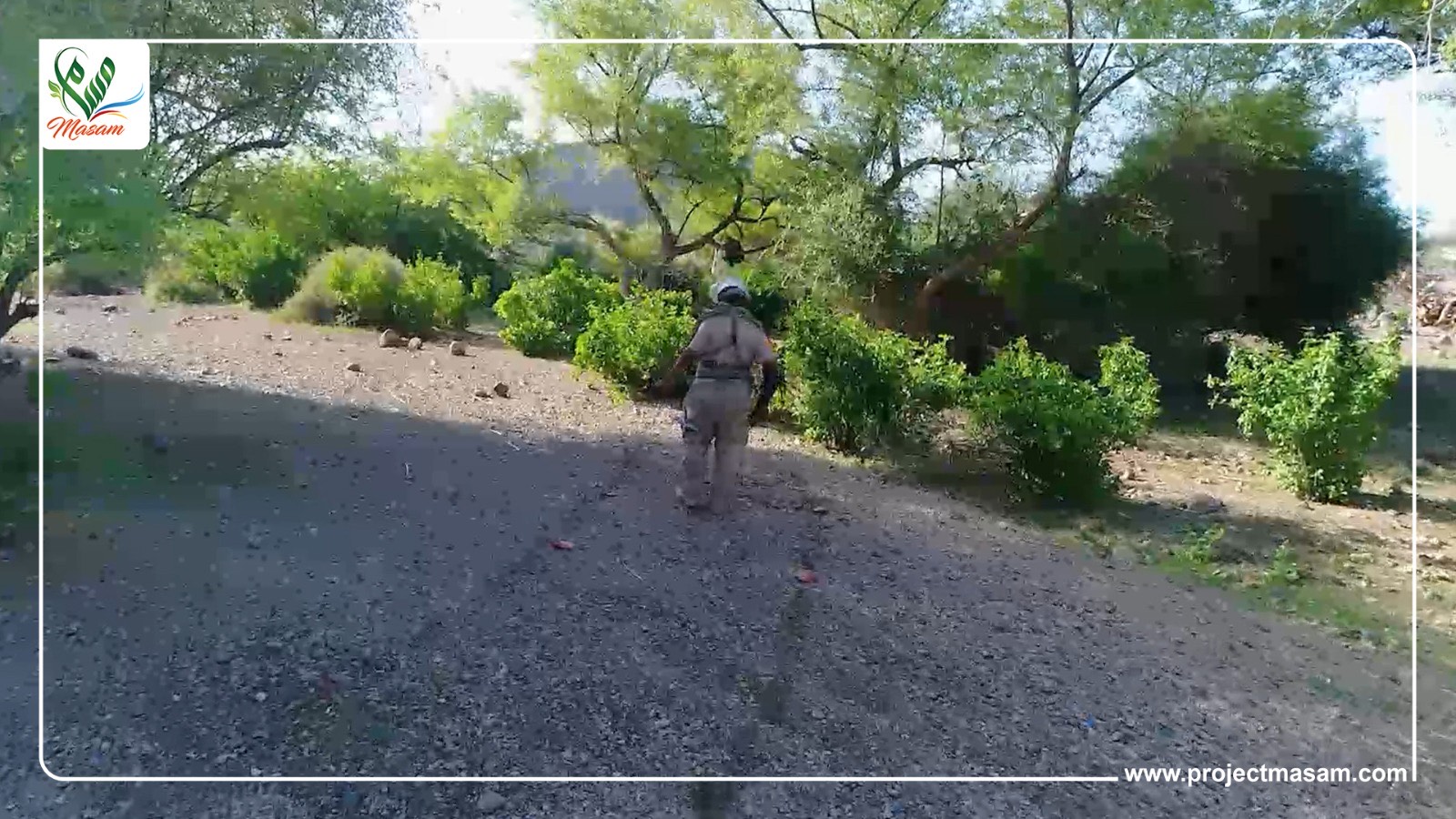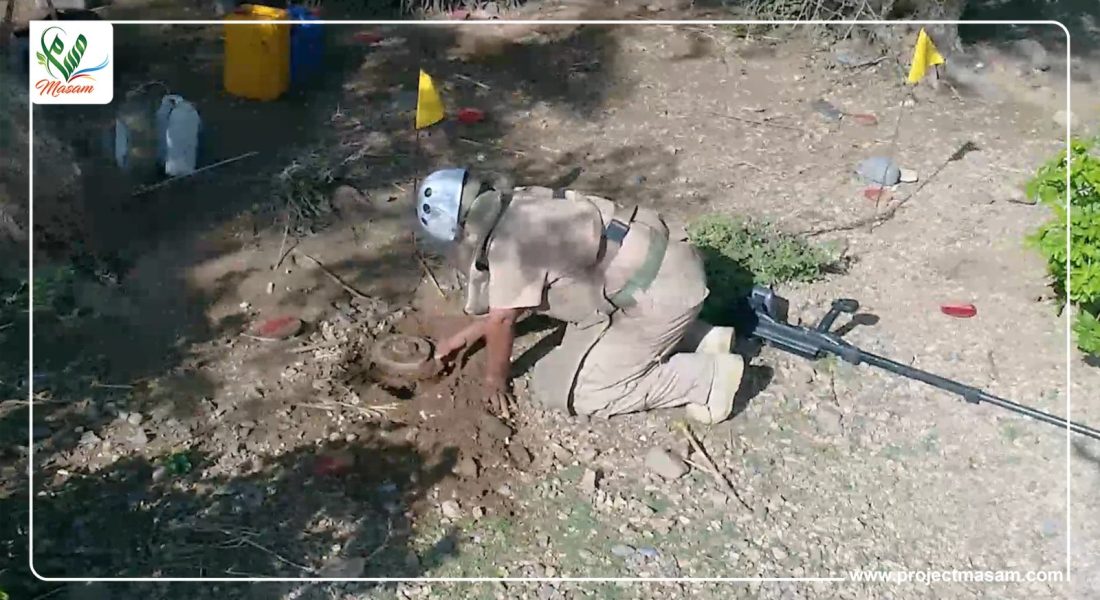Project Masam’s Team 17 has announced the removal of 11 anti-tank mines planted in front of a house in Mokha District, Taiz Governorate.
Since the conflict between Yemen’s pro-government forces and Houthi militias escalated in 2014, liberated strategic areas have been left cluttered with anti-personnel mines and anti-tank mines, along with unexploded explosive remnants of war (ERW).
In a statement, the Leader of Team 17 said that the team is working for the third consecutive day to secure civilians’ farms and homes in Wadi al-Awda, noting that landmines were planted indiscriminately in farms and in front of houses.
He explained that Team 17 was able to remove 23 anti-tank mines which had been planted on the farm and in front of farmer Said Al-Otri in Wadi Al-Awda in a week, adding that clearance work in Wadi Al-Awda will continue until the team secures every farm and house.
The leader noted that his team was dealing very carefully with the mines detected, as most of the mines were worn out and would have exploded at any time.
Al-Otri, meanwhile, pointed out that the militias forced farmers to leave Wadi al-Awda to other areas in Bab al-Mandab, and after their area was liberated, they returned to their homes and farms to cultivate them, but when they first attempted to work on their farms, they found a landmine that was washed away during work on the farm. The farmers were immediately forced to stop working and the incident was soon reported to the Masam teams working in the area.
The farmer praised the humanitarian role played by the Masam teams, stressing that Masam’s demining teams were able to dismantle dozens of landmines that were planted in farms and houses, and the deminers were able within three days of work to discover and remove 23 anti-tank mines from the farm, and the area surrounding the house.
He concluded by saying: “We hope that the teams of Project Masam will continue to remove mines from our farms, as we rely heavily on them for securing our livelihoods, as the rainy season is coming to an end and we have not yet been able to plow and cultivate our land.”
This is unfortunately the reality for many farmers across Yemen, a country where agriculture is the lifeblood of the economy and its culture. Indeed, before the conflict, the sector directly provided livelihoods for at least 73.5 percent of Yemeni households, according to the Yemeni government.


